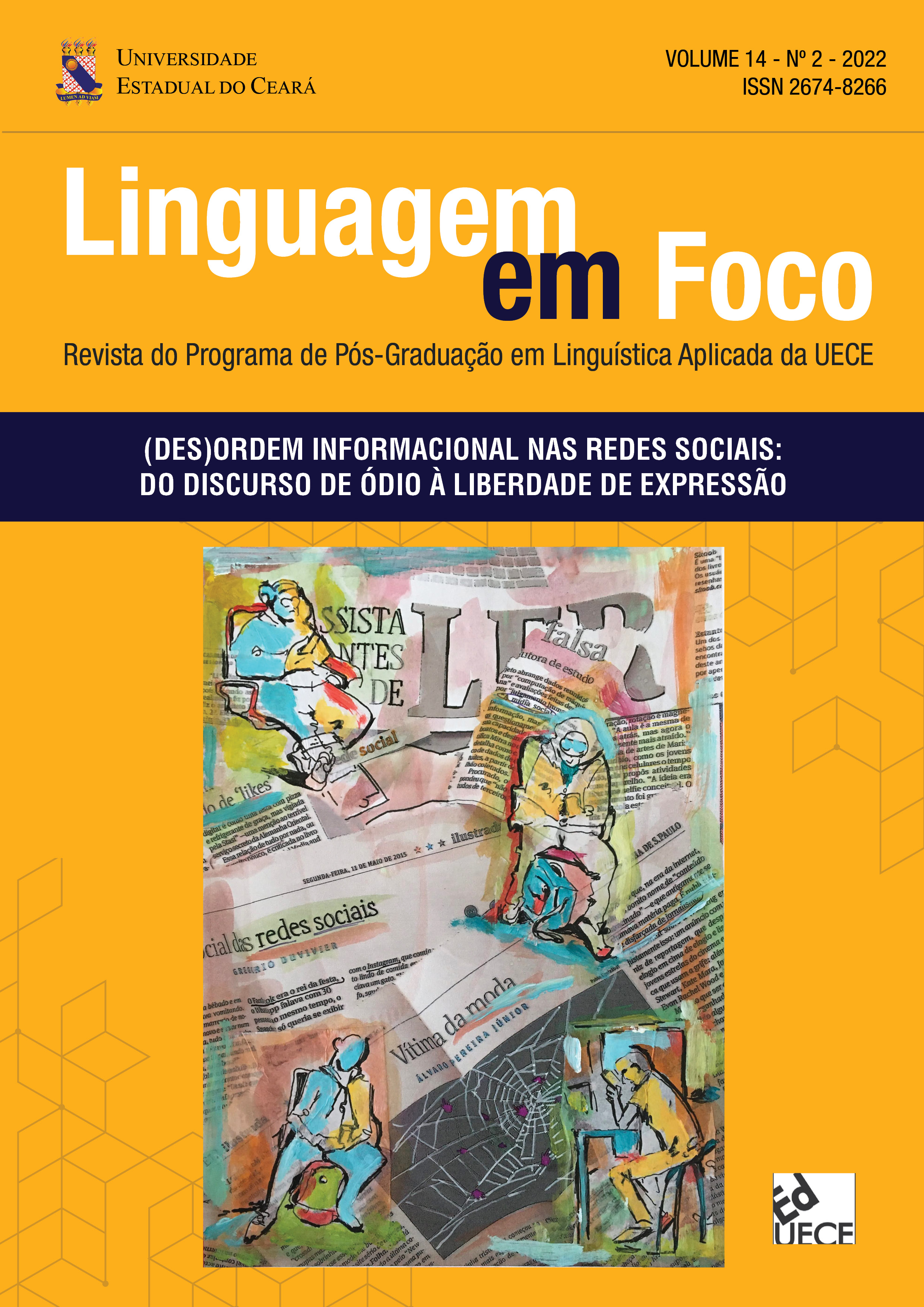Efeito Dunning-Kruger e dissonância cognitiva na CPI da Covid-19
A institucionalização da desinformação
DOI:
https://doi.org/10.46230/2674-8266-14-9238Palavras-chave:
Desordem da informação. Fake news. Efeito dunning-kruger. Dissonância cognitiva.Resumo
Com mais de meio milhão de óbitos por conta do vírus Sars-Cov-2, no Brasil, entre março de 2020 e junho de 2021, o Governo Federal tem sido responsabilizado pela sociedade e por outros estratos do poder pela má condução no gerenciamento à pandemia de Covid-19. Isso levou o Senado Federal a abrir uma Comissão Parlamentar de Inquérito (CPI) da Covid, em 2021, para investigar as ações e omissões do governo nesse período pandêmico. É sob esse universo que objetivamos, neste trabalho, explanar como o efeito dunning-kruger (DUNNING, 2011) e a dissonância cognitiva (FESTINGER, 1968) se manifestam na CPI, institucionalizando a desinformação (WARDLE; DERAKHSHAN, 2017) no país. Para esse objetivo, selecionamos trechos dos depoimentos de três personagens de destaque no governo convocados para depor no processo, a oncologista Nise Yamaguchi, a pediatra Mayra Pinheiro e o general Eduardo Pazuello, e mostramos como esses conceitos se materializam em seus discursos. Os resultados preliminares apontam que o quadro da desinformação é legitimado em nível institucional, sobretudo pelas crenças e valores que podem ser demonstrados pelo efeito dunning-kruger e pela dissonância cognitiva agindo sobre personagens com poder de decisão no Governo Federal.
Downloads
Referências
DUNNING, D. The dunning-kruger effect: on being ignorant of one´s own ignorance. Advances in experimental social psichology, v. 44, p. 247-297, 2011.
FESTINGER, L. Theory of cognitive dissonance. Stanford: Stanford University Press, 1975.
KRUGER, J.; DUNNING, D. Unskilled and Unaware of It: How Difficulties in Recognizing One's Own Incompetence Lead to Inflated Self-Assessments. Journal of Personality and Social Psychology, 77, 1121-1134, 1999.
NASCIMENTO, I. O. Ensino de Língua Portuguesa por meio da análise de design e de elementos discursivos em fake news políticas: proposta de cartilha para identificação de notícias falsas. Dissertação (Mestrado em Ensino) – Universidade Federal Rural do Semi-árido, Programa de Pós-graduação em Ensino, Mossoró, 2020.
OXFORD LANGUAGES. Word of the Year 2016. [s.l.], 2020. Disponível em: https://languages.oup.com/word-of-the-year/2016/. Acesso em: 3 mar. 2022.
ROTHKOPF, D. J. When the buzz bites Back. The Washington Post. 2003. Disponível em: https://www.washingtonpost.com/archive/opinions/2003/05/11/when-the-buzz-bitesback/bc8cd84f-cab6-4648-bf58-0277261af6cd/. Acesso em: 15 ago. 2022.
SEIXAS, R. Gosto, logo acredito: o funcionamento cognitivo-argumentativo das fake news. Cadernos de Letras da UFF, v. 30, n. 59, p. 279-295, 21 dez. 2019.
SILVA, F. G.; TINOCO, G. A. Multiletramentos em tempos de crise: a escola contra as fake news. In: AZEVEDO, I. S. M.; COSTA, R. F. (Org.). Multimodalidade e práticas de multiletramentos no ensino de línguas. v. 1. São Paulo: Blucher, 2019, p. 189-210.
SOON, C.; GOH, S. Fake news, false information and more: coutering human bases. IPS Working papers, n. 31, set. 2018.
WARDLE, C.; DERAKHSHAN, H. Information Disorder: Toward an Interdisciplinary Framework for Research and Policy Making. Brussels: Council of Europe, 2017.
Publicado
Como Citar
Edição
Seção
Licença
Copyright (c) 2022 Isadora Oliveira do Nascimento, Vicente Lima-Neto

Este trabalho está licenciado sob uma licença Creative Commons Attribution 4.0 International License.
Os autores que publicam na Linguagem em Foco concordam com os seguintes termos:
- Os autores mantêm os direitos autorais e concedem à revista o direito de primeira publicação. Os artigos estão simultaneamente licenciados sob a Creative Commons Attribution License que permite a partilha do trabalho com reconhecimento da sua autoria e da publicação inicial nesta revista.
- Os conceitos emitidos em artigos assinados são de absoluta e exclusiva responsabilidade de seus autores. Para tanto, solicitamos uma Declaração de Direito Autoral, que deve ser submetido junto ao manuscrito como Documento Suplementar.
- Os autores têm autorização para disponibilizar a versão do texto publicada na Linguagem em Foco em repositórios institucionais ou outras plataformas de distribuição de trabalhos acadêmicos (ex. ResearchGate, Academia.edu).





























